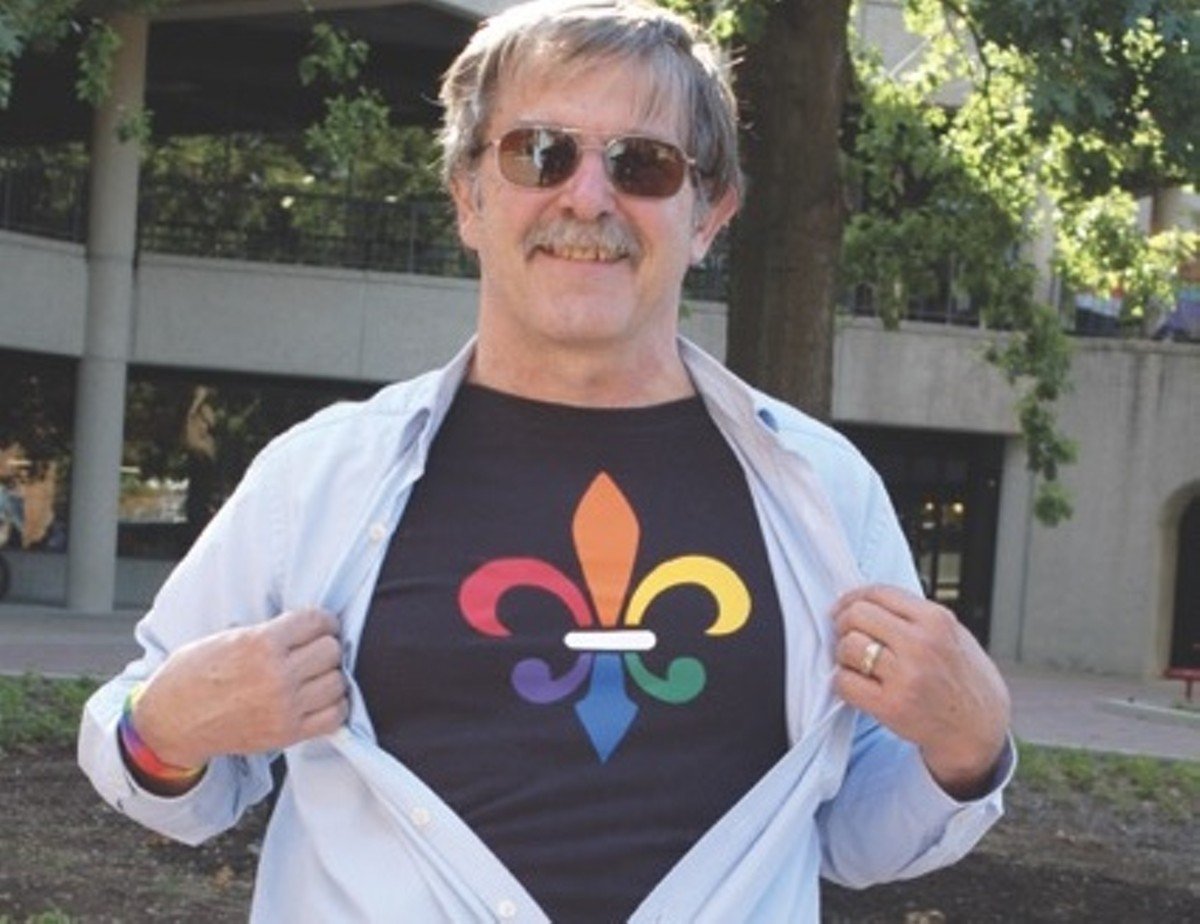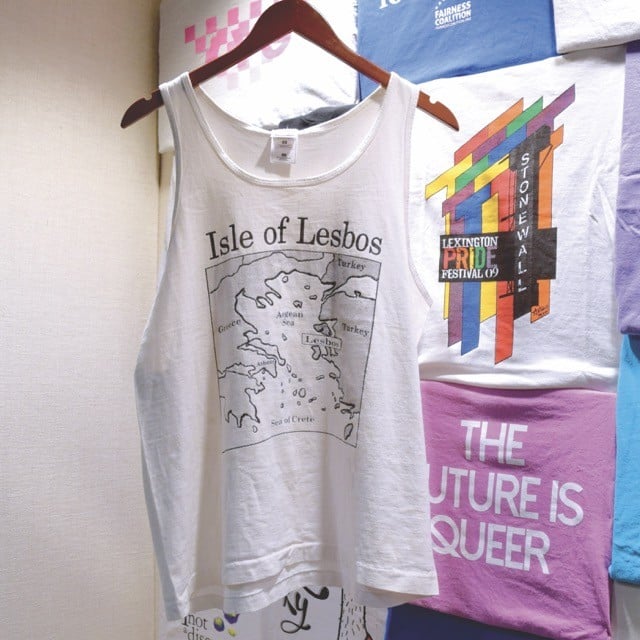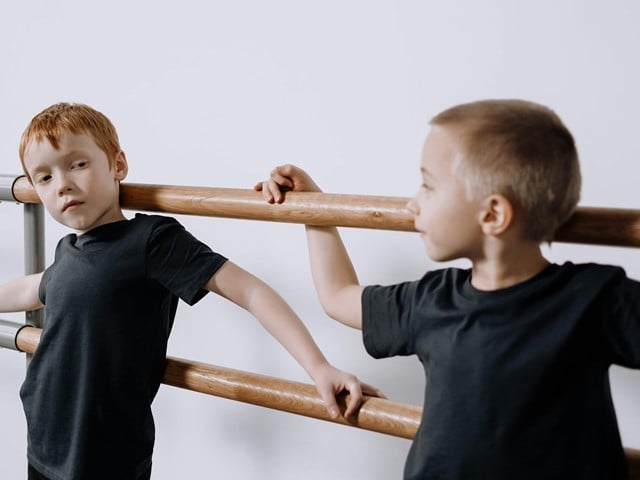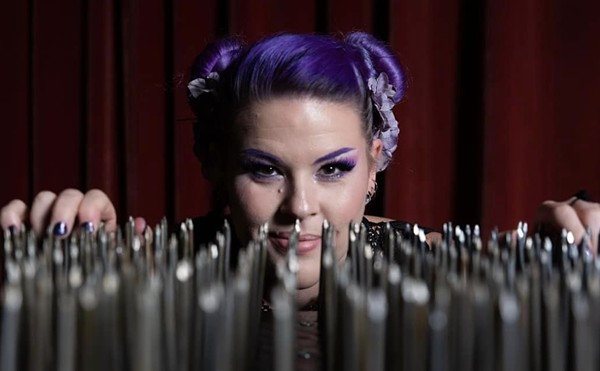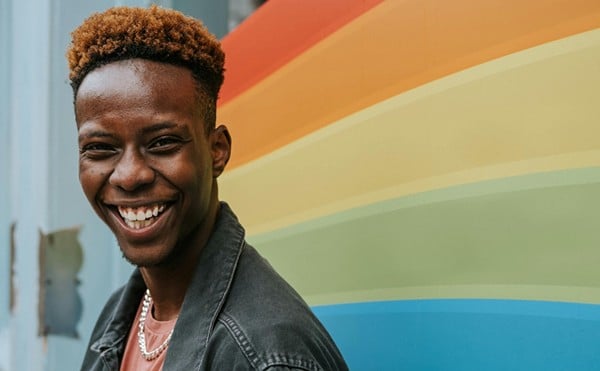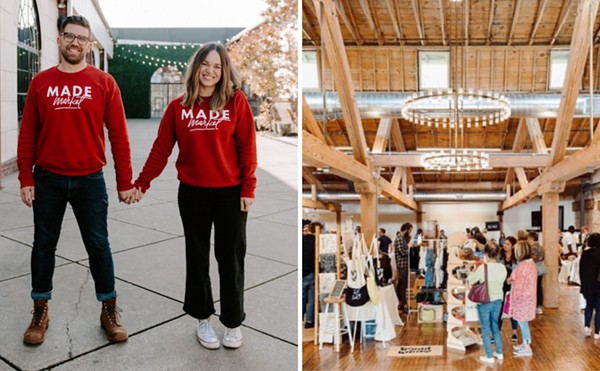As of June 2024 — also known as Lesbian, Gay, Bisexual, Transgender, and Queer (LGBTQ) Pride Month — there are 515 anti-LGBTQ bills around the U.S. in state legislatures. People whose sexual orientations and gender identities place them in a minority are once again being marginalized in America. But despite what some political pundits and religious extremists claim, LGBTQ people are not a stain on the fabric of society. We are a shimmering fiber in the very weave of every culture in the world.
There is evidence that LGBTQ people have existed since before there were terms to describe us. In Ancient Egypt, Khnumhotep and Niankhkhnum, two male ancient royal servants to the sixth pharaoh of the fifth dynasty, are depicted as a same-sex couple.
More recently, children’s author Maurice Sendak (“Where the Wild Things Are,” among many others) lived with his partner Eugene David Glynn for 50 years until Glynn’s death in May 2007, but only shared that fact publicly one year after Glynn’s death. Sendak’s work is an unequivocal part of innumerable childhoods, but his sexual orientation was effectively a secret until the last four years of his life.
Sally Ride — the third woman, and the first American woman to travel into space (who was also the youngest American astronaut at the time) — was only publicly revealed to have been married to a woman named Tam O’Shaughnessy in her obituary in July 2012.
Despite the active presence of LGBTQ people in society, our history is often made invisible. Our lives have not always been noted, or regarded by cultural gatekeepers as noteworthy. Our broad spectrum of contributions have often been absorbed by the larger culture without any acknowledgement of who we were as people. Here in Louisville, one gay man wanted to document who we were as a way to celebrate who we are.
The Williams-Nichols Collection
David Williams is a founder of the Williams- Nichols Collection, an archive housed in the Archives and Special Collections, one of seven libraries in the University of Louisville's library system. One of the 10 largest LGBTQ archives in the country, the collection includes books, manuscripts, photographs, audiovisual media, and realia with an emphasis on organizations and activities based in Kentucky, Indiana, Ohio, and Tennessee — although some are from as far away as Laos. Ephemeral material in the collection includes protest banners, posters, fundraising materials, matchbook covers, bumper stickers, pins and T-shirts. There are approximately 7,000 books and 30,000 magazines in the collection, including entire runs of trailblazing gay and lesbian publications such as “The Lavender Letter,” “The Mattachine Review,” “The Ladder,” and “Vector,” along with feminist publications such as “Sojourner.”
Williams was born in Louisville and attended Catholic schools (St. Agnes, St. Xavier, Xavier University, and one year at Notre Dame). He came out as gay in 1972. “Until the 1960s and 1970s,” he says, “People were reluctant to come out as gay.” At the time of his coming out, homosexual activity was against the law in every state except Illinois. Illinois adopted the recommendations of the Model Penal Code in 1962 and became the first state to rescind consensual sodomy from its criminal code — almost 10 years before any other state. In every other location in the country, if a person was even presumed to be homosexual, they could lose their job, be evicted from their apartment, and be ostracized.
These were predictable reactions to what was seen at the time as a pathologically deviant sexual orientation. In the instance of a nonconforming gender identity, a person’s social wellbeing was at an ever higher risk of castigation. Lucy Hicks Anderson, a Black trans woman born in Waddy, KY in 1886, was accused of perjury for self-identifying as a woman and marrying a man in 1920 (then divorcing in 1929 and marrying another man in 1940). She was later charged with fraud for receiving financial allotments intended for wives of soldiers, and sentenced to 10 years in a men’s prison.
“So gays and lesbians tended to be very secretive about it,” Williams says. “That’s one of the main problems with why we have such difficulty of learning about our history: Because everything was so hush hush, so furtive.”
Soon after he came out, Williams began collecting items related to the gay cultural experience. “I’ve always been history-minded and also a packrat,” he says. “So I started collecting, haphazardly, newspaper articles, and magazines, and things like that.” His collecting was not done in an orderly fashion until 1982, when he formally founded his collection.
Items in his collection had been scattered across all the places he had lived over the course of 19 years. In 2001, after gathering the contents of his decades of collecting, he donated it all to the University of Louisville, an academic institution that he feels is “one of the few gay supportive colleges and universities in the South. It has always been there for us.”
Williams began sending items to the Ekstrom Library during the first few months of 2001. The process was completed by June, and he and the library staff had a celebration, which was serendipitously on June 28 — the anniversary of the 1969 Stonewall Riots.
In subsequent years since the establishment of the archive, Williams did a study of men and women in Louisville, southern Indiana, and throughout Kentucky who had contracted HIV and died of AIDS. His work anthologized approximately 460 short-form biographies of each of those people. “I put it into a binder called ‘Forever Young: Deceased Men and Women with HIV or AIDS from Kentucky and Southern Indiana.’ I think it’s the best thing I ever did.”
Williams emphasizes that he is engaged in ongoing research into LGBTQ history. “History is not a dead thing — it’s a living, breathing thing — because it’s populated with all these people with interesting lives and stories. We aren’t just collecting things, but adding to our knowledge.”
Fortifying Our Future by Learning about Our Past
Many LGBTQ people are concerned that American culture is moving toward a backwards future, in which book bans, prohibitions on drag performances, and restrictions on trans healthcare are becoming the new norm. Williams has some trepidation about the current trend of anti-LGBTQ sentiment, but thinks of himself as “an eternal optimist.”
“I’ve been around long enough to know that it’s all yin and yang,” Williams says. “Sometimes we wax and sometimes we wane. We had a really long run there. Starting in the Clinton years, going into the Obama years, we were continually progressing and having all these victories. We got same sex marriage, and sodomy laws were rescinded.” The cadence of his voice is steady when he says the although the LGBTQ community was going strong for almost 20 years, it is now moving toward another social and political extreme.
“Wherever there is an action, there is a reaction. We’re going through this reaction with the conservatives and the Republicans and the religious nuts. They smell blood. And they’re out to get it. I don’t know when it’s going to end.” He pauses, and modulates into the tone of someone who has lived through worse times. “I know it will end. It always does. In the meantime, we hold our heads up high and live our lives as authentically as we can. It’s not a permanent thing … It’s just something we have to put up with.”
Not Yet / Always Been
Dr. Jennifer Sichel is an Assistant Professor of Contemporary Art and Theory at the Hite Institute of Art and Design at University of Louisville. Like Williams, Sichel’s research focalizes LGBTQ history, but her research is centered in New York in the 1960s and 1970s. Her forthcoming book “Criticism Without Authority: Gene Swenson and Jill Johnston’s Queer Practices” is about art critics whose writing offered them an improbable queer space in an otherwise hostile cultural environment. It will be published by University of Chicago Press in 2025.
During the 2023–2024 academic year, Sichel taught a course called “Queer Theory and Curating.” Over the course of the semester, her class of 12 undergraduate and graduate students spent weeks combing through the Williams-Nichols collection. The students are now curating an exhibition that will open in the fall called: “Not Yet /Always Been: An Archive of Queer Louisville.” “It has been an amazing experience for my students to dig into this local queer history and to go through all the boxes of ephemera and think about what it would mean to create an exhibition out of all those objects,” she says.
During one class session, she and her students went to the archive together, and Williams was there. He shared with her students what it has meant for him to develop this collection. “He told his story about growing up in the ‘40s and ‘50s and never seeing any evidence of queer life in the library except for a few treatises on how it was a pathology. He didn’t want that to be anyone else’s experience, so he assembled this collection. It was a really wonderful moment for my students.”
Sichel could see how meaningful it was for Williams to engage with “an animated group of students, laughing and looking at things and passing them around and getting excited about what they were finding. It was a very beautiful moment of teaching and learning.” It was also striking for Sichel to observe her students, many of whom grew up in Louisville, who did not know any of the history that the Williams-Nichols Collection offers. Her students learned about the queer history of Louisville through this archive, and that “queer history has always been part of the fabric of this city.”
We’re Here, We’re Queer, Get Used To It
Nothing any legislature can do can reverse the fact that a gay man wrote some of our culture’s most popular children’s books, or stop a lesbian from having gone into space. But it is not only the renowned members of the LGBTQ community whose lives deserve to be documented or whose stories deserve to be told. Each of us is a part of history in our own way. Each of us belongs here in the present, and whatever weather the current political climate might bring, there

